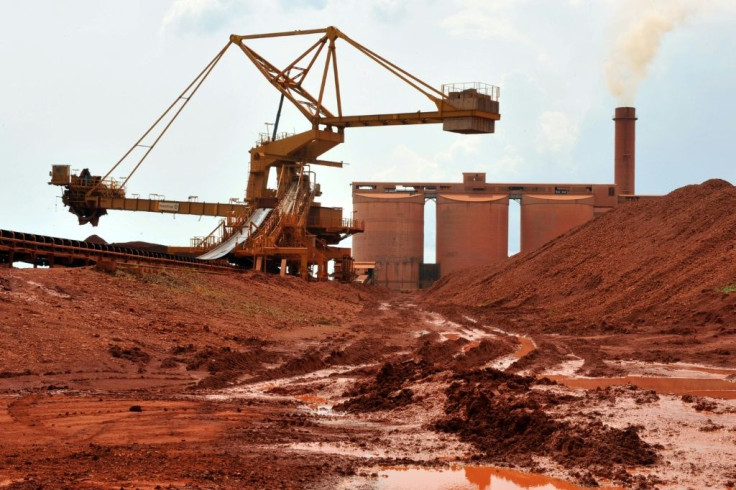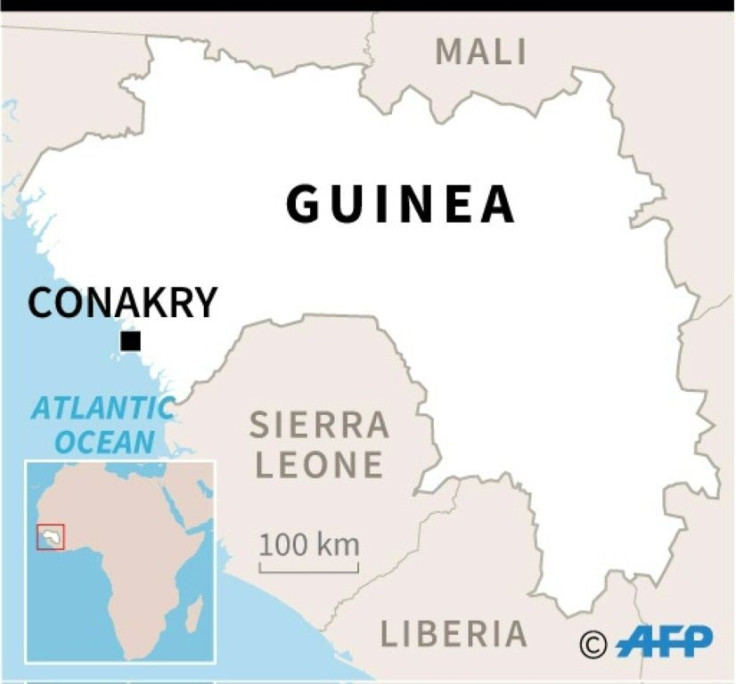Coup Puts Spotlight On Guinea's Huge Bauxite Reserves
The latest coup in bauxite-rich Guinea is reverberating across the market for aluminium, although for now it appears the global production chain is not under threat, analysts say.
Aluminium prices, already buoyed by a gradual economic recovery, topped $2,800 a tonne to reach a 13-year high on Wednesday after the coup.
Here's why Guinea is such a big market factor:
A country of 13 million inhabitants, Guinea possesses the world's largest reserves of bauxite, the reddish or grey rock that is extracted into aluminium oxide, which is then smelted into aluminium.
The West African state holds estimated bauxite reserves of 7.4 billion tonnes, or around one quarter of the global total, US Geological Survey (USGS) said last year.

Domestic and foreign firms last year produced 82 million tonnes of bauxite in Guinea.
They were surpassed only by Australia, which has the world's second-largest reserves ahead of Vietnam and Brazil.
China -- with around seven times less reserves than Guinea -- imports around half its needs from there, according to raw materials consultancy CRU, increasingly upping purchases in recent years "following the deterioration in quantity and quality of domestic bauxite reserve."
The mining sector in Guinea, which includes gold and diamonds, is crucial to the national economy, accounting for some 15 percent of GDP and around 80 percent of exports, according to the World Bank's Macro Poverty Outlook.
Beyond potential short term supply wobbles, observers are confident the coup will not have lasting effects.
"It remains most likely that miners will be able to continue operating, even though we lack clarity on the direction of the country's mining policy and who will manage the government's portfolio," notes Eric Humphery-Smith, Africa analyst at risk intelligence company Verisk Maplecroft.

In one of his first declarations after the weekend takeover, coup leader Lieutenant-Colonel Mamady Doumbouya sought to reassure business partners and foreign investors.
Guinea will "uphold all its undertakings (and) mining agreements" and "maritime borders will remain open for export activities," he said on Monday.
"The new leadership declared that bauxite production is very important to the country and should continue as usual. I would not expect severe disruptions to production and exports if safety can be guaranteed," Commerzbank analyst Daniel Briesemann told AFP.
Even so, Humphery-Smith warned there is some risk, albeit "remote," that a future Guinean government may push through a renegotiation of contracts or expropriate foreign-owned mine assets.
Despite Doumbouya's promises, foreign operators in Guinea are keeping a close eye on the turbulence, although they say that for now their operations have not suffered any impact.
Russian aluminium giant Rusal, which produces half of its bauxite output in Guinea -- 7.3 million tonnes according to the journal Kommersant -- said Monday it was considering evacuating Guinea-based staff should the situation "escalate."
Kremlin spokesman Dmitri Peskov said Tuesday he was waiting to see that "the interests of our businessmen and firms are not affected and that their interests are guaranteed."
South African gold firm AngloGold Ashanti said Monday operations at its Siguiri mine were functioning "normally."
Aluminium prices had already been soaring well before the coup, rising by about 40 percent since January as global economic activity bounces back from the Covid-19 trough.
Also pushing prices higher are rising electricity prices in China, which has led to a sag in production at a number of foundries in its western Xinjiang region -- aluminium smelting consumes voracious quantities of energy.
According to CRU, Guinea's political crisis ought not to weigh unduly heavily on the production chain -- the consultancy notes Beijing presides over healthy stocks.
"CRU currently estimates cumulative bauxite stockpiles to exceed 50 million tons in China, and so be equivalent to around six months of imported bauxite consumption."
© Copyright AFP 2024. All rights reserved.











